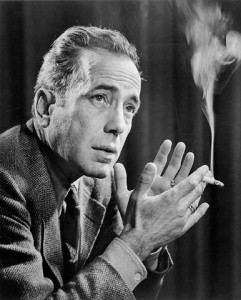Posts by David Corbett
I want to write today about a topic so unthinkably scandalous, so perniciously wrong, so beyond the pale of human understanding that, for whatever reason, writers avoid it at all costs in their stories, novels, and scripts.
I speak, of course, about Platonic friendship between heterosexual men and women.
Now wait – I hear you say – I know a great many male-female friendships, and my own life is full of them. The writing community in particular, to name just one, is rife with cross-gender friendships. I bet if we poll those reading this blog, we’ll learn of dozens if not hundreds of such friendships.
[pullquote]Why is this seemingly ubiquitous aspect of modern life so absent from films and novels?[/pullquote]
And yet, you’d hardly know such a thing is possible from what one finds in the pages of books and on film screens. And though TV has tended to a bit more generous, it invariably caves to the presumed audience desire to have the characters “get together.” (Friends, perhaps the most inaptly named program in the history of broadcasting, was nothing but a prolonged romantic comedy where true friendship was just a kind of waiting room between hookups.)
The frisson of romance, if not rampant sexual tension, routinely bristles between a man and a woman in a story. The great Stella Adler, in a drama workshop I attended in my twenties, chastened two students who were tiptoeing through a courtship scene: “Every time a man and a woman are on stage they are totally in love. All they’re discussing is terms.”
And yet this seems a great loss. Some philosophers, Plato among them, considered friendship to be the ultimate human bond — it is chosen freely, is sustained only through mutual consent, and is often based on genuine affinities unadulterated by family obligation or sexual desire. Are straight men and women really incapable of it?
My life would be severely impoverished without my women friends. (The “best man” at my wedding was in fact a woman, my longtime friend Dawn Hawk.) Yes, there’s an element of flirtation about many of these friendships, and every peck on the cheek provides a whiff of perfume, the brush of skin against skin, a hint of la difference. But they are not “friends with (the possibility of) benefits” or “romances in limbo,” any more than my wife is a “main squeeze with equity.”
Why is this seemingly ubiquitous aspect of modern life so absent from films and novels?
Read MoreHaving just published my fifth novel and begun my sixth, I’ve found myself experiencing a curious sensation of: Wait. I’ve been here before.
It’s not that I recognize the same problems – each book has many of the same problems, and a dozen others all its own – or that I’m beginning to repeat myself. A certain element of repetition is inevitable as I refine my understanding of certain human conundrums I’m trying to address in my work – the necessity of love despite its limitations, the social nature of not just morality but truth, the hypocrisies of justice. I’ll be tripping over that furniture in the dark for as long as I write.
This time the sense of circularity concerned my characters. And since I’ve staked my pennant on that particular narrative overlook, I found it troubling, this suspicion that I might, in fact, be simply parading out the same cast of players in different costumes.
[pullquote][E]very writer has a given theater in his head, a repertory company. –Gore Vidal[/pullquote]
In particular, I realized the decent but troubled cop in The Mercy of the Night, Jordan Skellenger, bore no small resemblance to – guess what – a decent but troubled cop in Done for a Dime, Dennis Murchison.
Not only that, both had politically incorrect, wisecracking sidekicks: Dick Rosamar in The Mercy of the Night, Jerry Stluka in Done for a Dime.
Now by resemblance I mean exactly that: these men were similar, not identical. I have my limitations but I’m not a total nitwit. I did the hard work of making these characters unique. But in the end I had to recognize they were variations on a theme.
How many themes – how many characters – did I in fact possess? How could I know?
Read MoreDespite having worked as a private investigator for fifteen years, I had no interest whatsoever in writing a PI novel until recently. (My most recent novel, The Mercy of the Night, published earlier this month, has a quasi-PI, legal jack-of-all-trades protagonist – more on him shortly.)
The reasons for my reluctance to plumb my own professional experience were simple enough.
First, none of the PI novels I’d read, even the best – including Chandler’s, Hammett’s, and Ross MacDonald’s – bore much resemblance to the work I’d done as an investigator, though MacDonald’s came closest.
From what I could tell, readers expected their PI protagonists to be something akin to the plains gunmen in an urban setting, and that was as far from my own experience as imaginable.
For the most part – the part that would best lend itself to a crime novel – I was a cog in the justice system, a “people’s pig” who tracked down witnesses and sifted through evidence on behalf of criminal defendants to keep the prosecution honest.
Despite the job being by far the most interesting I’ve ever had outside writing, the vast majority of what I did wasn’t the stuff of action-packed thrillers. The work resembled more that of a reporter than a gunman – finding people, talking to them, writing it up – and I was only in physical danger once. (Ironically, the guy who tried to kill me was a doctor, but let’s put that aside for the moment.)
Second, it became pretty clear in my reading through the genre (and listening to agents, editors, and readers) that when it came to crime no one much cared to hear from the defense table.
It did seem that readers would at least tolerate hearing from the criminal himself, however, and that also seemed to provide me more juice as a writer. I found myself far more excited telling the criminal’s tale than belaboring the investigative steps taken on his behalf once he was caught.
Read MoreWhat distinguishes Sergeant Bilko from Lord Voldemort, or Voldermort from Michael Clayton?
Virtually every writing guide worthy of being read emphasizes the importance of character in crafting a compelling story. So why are so many of these same writing guides so vague on what it takes to create interesting characters?
John Truby, author of The Anatomy of Story—for my money, one of the best books on the writing craft available—emphasizes that the protagonist of any story must be “fascinating.” But he provides little practical guidance about how to create this capacity to fascinate. He instead discusses the protagonist (and all the other characters) in terms of their role in the story.
Is a compelling character really just the fulfillment of a role?
For centuries, this was exactly how characters — and human beings — were viewed. How did that start? When did it change?
The Evolution of Types
Aristotle equated change in a character with inconstancy, which he considered a form of moral weakness. Therefore, in a play, if a character changes, that change must be depicted as part of his essential character—as with Odysseus, for example, the quintessential deceiver and wearer of masks—otherwise the depiction is inconsistent.
[pullquote]Look no further than the website TV Tropes. The section titled “Characters as Device” is populated by contemporary Theophrastian characters: Always Second Best, Cop Boyfriend, Nazi Grandpa, Perky Goth.[/pullquote]
Theophrastus, a student of Aristotle, compiled an entire catalog of characters premised on moral type—the flatterer, the coward, the newsmonger, the backbiter, the braggart, et cetera—and these depictions were predictably rigid. A character didn’t wander from one temperament to another, but remained fundamentally true to his type.
This kind of classification helped form the comic characters of Theophrastus’s student Menander, and a century later those of Terence, but its influence didn’t stop there.
English writers especially found Theophrastian characters useful, all the way through the 19th century. Fielding, Smollett, Thackeray, and Dickens employed them—they suit nicely the satirical purposes these writers pursued—and one often finds hints of them in secondary or comedic characters even today.
Look no further than the website TV Tropes. The section titled “Characters as Device” is populated by contemporary Theophrastian characters: Always Second Best, Cop Boyfriend, Nazi Grandpa, Perky Goth.
As clever and nuanced as these formulations may be, they retain the rigidity of a type. The character’s behavior is largely predetermined. What they do is seen as a direct effect of who they are—their type.
This point isn’t lost on the creative minds behind TV Tropes. They note that such characters are “sometimes … just plot devices with lines”—or plot puppets, as they’re sometimes called.
“Mediocre writers will merely take one of the … labels and slap a name on it. By contrast, better writers start with a character and slap two or more of the following labels on it.”
But how does the better writer create that character to begin with?
Read More
No, this isn’t another post about the Amazon-Hachette imbroglio.
I recently took part (along with WU’s Donald Maas) in the Surrey International Writers Conference outside Vancouver, absolutely one of the best literary powwows I’ve ever attended, and I’ve been to scads. (Sadly, I’m unable to attend the WU Un-conference beginning today. I have no doubt it’s even powwowier!)
One of the workshops I gave at the Surrey conference was titled Beyond Good and Evil: Using Moral Argument to Develop Plot & Character.
Moral argument as a structural device expands the thematic range of the conflict from a battle of individuals to a contest of moral visions. Each character is seen as seeking to create, maintain, or defend a way of life – an idea of what it means to live well among others – and if the conflict in the story is crafted well, these ways of life are ultimately antithetical.
This is what Lajos Egri (The Art of Dramatic Writing) meant by the Unity of Opposites – a tightly woven conflict in which the protagonist and the opponent (or the problem/challenge the protagonist faces) are inextricably bound together, so that escape or compromise is impossible. Either the opponent must be defeated (or the problem solved, the challenge met), or the protagonist fails in a shattering, life-changing way – in a sense, she dies, if not physically then emotionally, morally, professionally.
But the stakes are also ultimate for the opponent – otherwise the protagonist’s victory or success is diminished. A hero who overcomes a facile, underdeveloped or unconvincing opponent – or solves an unimpressive problem, meets a humdrum challenge – will fail to engage the reader in a memorable way.
[pullquote]We need to see life through the eyes of someone we would most likely flee, berate, or even despise if we made their actual acquaintance. [/pullquote]
To stage conflict meaningfully the stakes have to be ultimate for all concerned, and this requires understanding the opponent’s perspective just as fully as the protagonist’s.
This requires that we justify – not judge – our opponent’s worldview. We can’t remain outside this character, feeling toward him but not for him. Stepping into his shoes is just the beginning. Sooner or later, we have to inhabit his heart and soul.
This often means we need to see life through the eyes of someone we would most likely flee, berate, or even despise if we made their actual acquaintance. And this requires that we not just accept but champion, embrace — dare I say it, love — someone we consider fundamentally mistaken, hurtful, even evil.
I know. Writers have all the fun.
And yet…
Read MoreI’m not sure whether to be heartened or dismayed by the number of my students and editorial clients who exhibit the same problem I routinely have as a writer.
If asked what the story is about—what the protagonist wants, why he wants it, what stands in his way—I often encounter the same creased brow and thoughtful nod I provided my own teachers, with the inevitable, “It’s complicated.”
And the response is equally inevitable: “That’s exactly the wrong answer.”
To mangle a phrase: I can overthink a goddamn potato.
[pullquote]“If you can’t explain it to a six-year-old, you don’t understand it yourself.” –Albert Einstein[/pullquote]
My mind sees endless variation and nuance in the simplest things, and what elaborations it doesn’t see it creates.
I used to consider this a sign of intelligence. I thought that those constantly harping on the KISS Principle—Keep It Simple, Stupid—were mediocrities lashing out at those who had an IQ over room temperature.
But that was snotty arrogance on my part. I wasn’t just mistaken. I was lying to myself.
It wasn’t as though I didn’t know what was what. Before I started writing fiction, I’d already learned that simplicity equated with truth. I learned this, ironically, studying mathematics, a subject most people find hopelessly complicated.
It’s not. It’s just difficult.
From Sir Isaac Newton (“Truth is ever to be found in the simplicity, and not in the multiplicity and confusion of things.”) to Albert Einstein (“If you can’t explain it to a six-year-old, you don’t understand it yourself.”), I’d been almost browbeaten into realizing that the need to overelaborate was the surest sign of foggy thinking if not outright flummery—“hand-waving,” my professors called it.
And yet, as I began to write fiction, I found it far easier to spin off in new directions than to settle in, focus, and ask myself: What’s really going on here?
Acting and theater helped a great deal. I discovered the mysterious power of scenes. Putting two or more people at odds, vying for the same thing—or irreconcilable things—created the opportunity for incredible variation as they forced each other to devise and employ new, different, stronger, more extreme methods to keep after it.
The trick was knowing what “it” might be.
This “it,” I learned, was called the Objective. Simply put, I was forced to ask in every scene and every story I wrote: What does the character want?
[pullquote]I found it far easier to spin off in new directions than to settle in, focus, and ask myself: What’s really going on here?[/pullquote]
And I, like so many of my students and clients since, feeling the sprawling expanse and ornate intricacies of my tale, felt obliged to respond, “It’s complicated.”
And I was always wrong. What I perceived as a complexity was really just a confusion—worse, an evasion—in drag.
Read MoreThis post concerns character and voice, but I’m going to start by discussing bees. And Denis Diderot.
In his novel Rameau’s Nephew, Diderot disputed the notion of a distinct and singular human personality. He considered this a holdover from the days of superstition—it smacked of a soul, and other discardable pieties.
Using as a mouthpiece a fictionalized version of the composer Rameau—who was constantly obliged to curry favor with patrons, placate audiences, appease musicians, hold off creditors, sweet-talk paramours—Diderot argued that we assume a given role depending on the social circumstances we face, with completely contradictory roles required in different places at different times.
[pullquote]Who am I supposed to be?[/pullquote]
Instead of being steadfast and certain—our “true nature,” or the image of God—human character more resembles a swarm of bees, comprised of dozens, even hundreds of individual poses or personas swirling around a void.
If one of those personas feels more solid or firmly rooted, that’s only because habit, created by the daily assumption of that particular role—dutiful daughter, friendly neighbor, taskmaster boss—has made it more routine, familiar, natural.
But all it takes is a sudden or drastic change in social setting and we find ourselves asking: What’s expected of me here? Who am I supposed to be?
Read MoreI’ve read a great many postings here and elsewhere in the blogosphere lately offering guidance and inspiration on overcoming the inevitable setbacks, disappointments, frustrations and rejections inherent to the writing life.
You want inspiration? Strap yourself in. I doubt you’ve heard a story like this one.
Back in April, 2012, I received a request from Tom Jenks, editor extraordinaire and co-founder with his wife, novelist Carol Edgarian, of NARRATIVE, an online magazine devoted to publishing fine writing, with a special devotion to emerging writers.
Tom asked if I’d consider offering a cover quote for a novel titled Offerings by first-time novelist Richard Smolev. In his note, Tom mentioned that the novel was “based in the world of finance and law, with an element of art theft involved,” adding: “Richard has a background in major bankruptcy law, and there’s an authenticity in his writing about the world of business and personal ambitions.” He noted that Scott Turow and Min Jin Lee were already onboard, then added the clincher:
Richard was not long ago diagnosed with ALS, and it is a great thing that his novel is going to come out this fall. We’d all like to see it have a good run.
ALS: Amyotrophic Lateral Sclerosis. Most of us know it as Lou Gehrig’s Disease: rapidly progressive, insidiously debilitating, invariably fatal.
Neurological in nature, the disease creates muscle weakness and atrophy until its victims lose first the use of their limbs, then their ability to speak or even swallow. They often become confined to a portable ventilator as eventually the diaphragm and other muscles necessary for breathing atrophy as well, creating a sensation like drowning, until the sufferer becomes an imprisoned consciousness in the withering thing his body has become.
It turns out Richard had been an extremely successful attorney before being diagnosed, and now that his disease prevented him from practicing law he turned to his long-eclipsed ambition to write—before he lost the ability forever.
I of course agree to read the book, fully aware I couldn’t praise it out of pity, no matter how tempted I might be. Luckily, that wasn’t necessary. Here’s what I wrote:
Read MoreToday’s guest is David Corbett. David is the author of four novels: The Devil’s Redhead, Done for a Dime (a New York Times Notable Book), Blood of Paradise (nominated for numerous awards, including the Edgar), and Do They Know I’m Running? David’s short fiction and poetry have appeared in numerous journals and anthologies, including Mission and Tenth, The Smoking Poet, San Francisco Noir and Best American Mystery Stories (2009 and 2011). He has taught both online and in classroom settings through the UCLA Extension’s Writers’ Program, Book Passage, LitReactor, 826 Valencia, The Grotto in San Francisco, and at numerous writing conferences across the U.S. He lives in Vallejo, CA.
His text on the craft of characterization, The Art of Character, was published by Penguin in January 2013.
David says,
“Without deep and meaningful characters, a story is just a shell and series of events. I want to help authors create characters that come vividly to life on the page and linger in memory. It is helpful to beginning and advanced writers to learn to plumb the rich source materials of their own lives and the world around them to fashion credible, compelling characters.”
Check out David’s website, visit him on Facebook, or follow him on Twitter (@DavidCorbett_CA).
—
Avoiding Boring Biographies: Character profiles premised on description and information are a fool’s errand. Chuck them. Write scenes.
In The Art of Dramatic Writing Lajos Egri urges writers to construct detailed character biographies focusing on three principal areas:
Physical
Psychological
Sociological
I’ve embraced this approach, with an important caveat: I don’t compile details such as a character’s height, complexion, marital status, religion, occupation, favorite dessert, and most cherished pet. Instead I envision things scenically, focusing on the question: How does my character’s physical, psychological, and sociological makeup affect her interactions with others?
A static laundry list of information about a character may aid a description but it offers little guidance in dramatizing how she behaves.
The screenwriter Frank Pierson (Cool Hand Luke, Dog Day Afternoon, Presumed Innocent) recommended writing scenes outside the script to see how the characters act in moments of embarrassment and conflict not tied to the story. He argued that picturing when your character “puked on her shoes” was more valuable than knowing her hair color or whether she graduated from high school.
The approach I’ve ultimately taken in my own work (after considerable trial and error) expands on this, though to the greatest extent possible I try to focus on envisioning scenes that I’ll potentially use, or that reflect meaningfully on the story I intend to tell.
Read More- « Previous
- 1
- …
- 6
- 7
- 8












